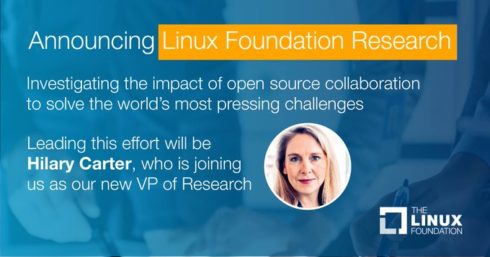
The Linux Foundation has launched a new research division to look at the impact of open source. Linux Foundation Research aims to broaden the understanding of open source projects, ecosystems, and impact by looking at open source collaboration.
“As we continue in our mission to collectively build the world’s most critical open infrastructure, we can provide a first-of-its-kind research program that leverages the Linux Foundation’s experience, brings our communities together, and can help inform how open source evolves for decades to come,” said Jim Zemlin, executive director at the Linux Foundation. “As we have seen in our previous studies on supply chain security and FOSS contribution, research is an important way to measure the progress of both open source ecosystems and contributor trends. With a dedicated research organization, the Linux Foundation will be better equipped to draw out insights, trends, and context that will inform discussions and decisions around open collaboration.”
RELATED CONTENT: The modern risks of open-source code
The research division will utilize the foundation’s data, tools and communities to apply quantitative and qualitative techniques to draw “objective, decision-useful insights.”
The foundation has also appointed Hilary Carter to lead the initiative. Carter will become the vice president of the division. Additionally, an advisory board will be put into place to help influence the program agenda and provide input, oversight and support.
“Whether we’re exploring the security of digital supply chains or new initiatives to better report on climate risk, the goal of LF Research is to enhance decision-making and encourage collaboration in a vast array of open source projects. It’s not enough to simply describe what’s taking place. It’s about getting to the heart of why open source community initiatives matter to all facets of our society, as a means to get more people — and more organizations — actively involved,” she said.
The division’s first announced plans is to look into making software supply chains more secure as well as explore the state of software security.






